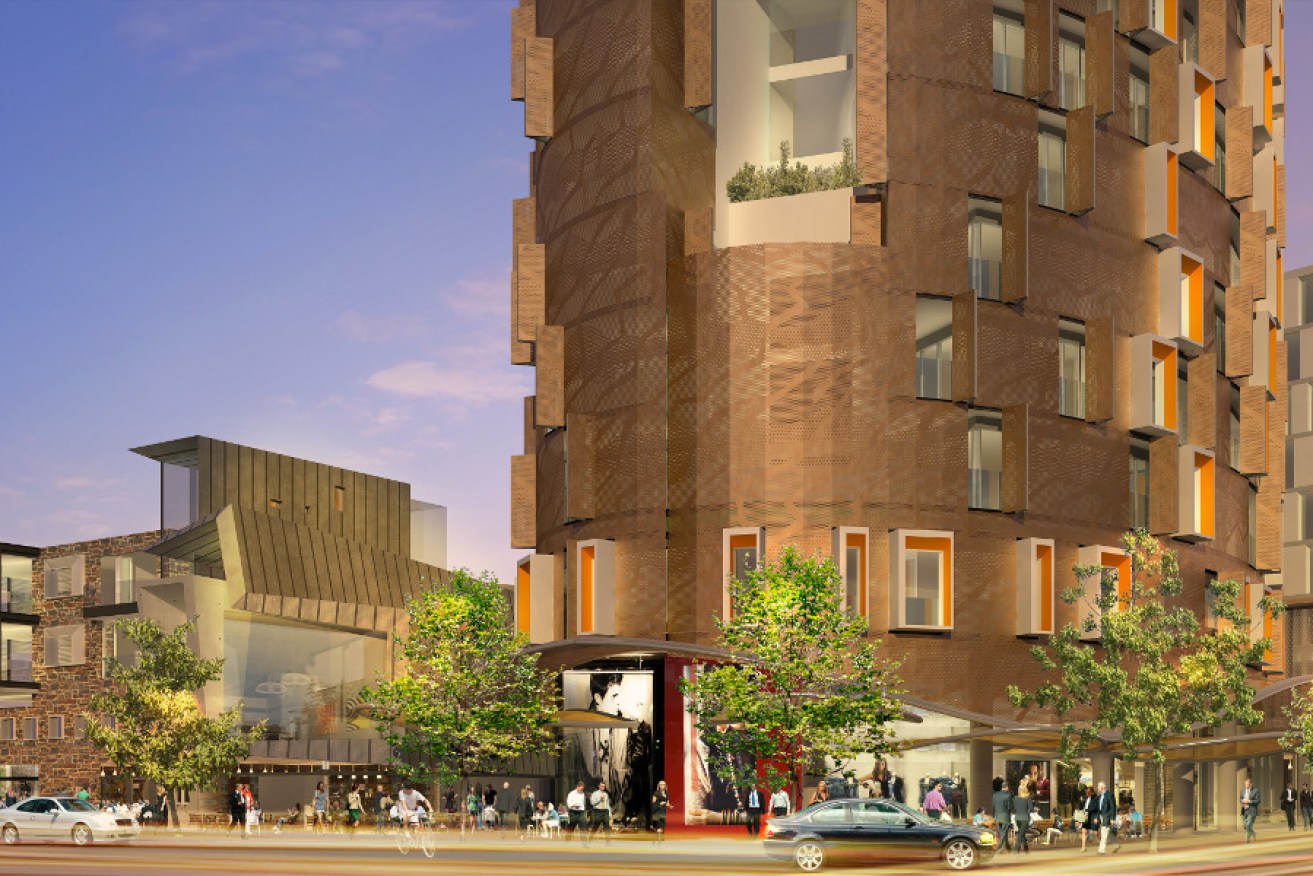City council split on vacant land tax
City councillors are divided over the concept of applying a large rates hike to developers who demolish buildings but leave the land vacant for years on end.


SCRAPPED: A rendering of the Makris Group's proposed development on the old Le Cornu site, which has been vacant for more than 20 years.
Last night, independent local government finance expert John Comrie presented his interim report on the Adelaide City Council’s revenue policies.
The report argues a higher council rate charged to owners of vacant land would be ineffective “unless the differential rate was extremely high”.
Lord Mayor Martin Haese told last night’s council committee meeting he supported applying a large “differential rate” to owners of vacant land – such as the notorious former Le Cornu site on O’Connell Street, which has remained empty for more than two decades – to encourage development.
Last year, the Makris Group, which owns the site, failed to meet the proposed start-date for the construction of a 16-level, golden-hued apartment tower and a six-level hotel building, plus offices, retail outlets, cafes, restaurants and an open square there.
As a result, the Development Assessment Commission granted a 12-month extension on the build, which will have to be substantially underway by next month.
Haese told last night’s meeting revenue from the increased rates could be used to fill a “fighting fund” to support new development.
“I’m quite supportive [of ] a differential rate in the dollar,” he said.
Revenue from the rates hike could “populate a fighting fund [to help] get the land developed,” he added.
Deputy Lord Mayor Megan Hender told the meeting it would be fair to charge higher rates on vacant land because it diminishes the value of nearby properties.
“When a bit of land is left vacant … it does diminish the value of properties nearby,” she said.
“We take a hit [in the form of consequently lower rates].”
But South Ward councillor Alex Antic said: “I’m firmly of the view that you don’t tax your way to prosperity”.
And area councillor Anne Moran told InDaily this morning she would rather see the council lobby the State Government to compulsorily acquire the Le Cornu site rather than potentially slapping all owners of undeveloped vacant land with a rates hike.
“The ownership of land is very sacrosanct,” she said, adding that no one would ask the owner of a residential property to improve their house or face higher taxes.
“I’d need a lot of convincing that a developer should be treated any differently,” she said.
“I agree, though, that this land banking by developers is really hurting the city.”
North Ward councillor Phil Martin told last night’s meeting that while extremely wealthy developers may not be significantly affected by higher council rates, an increase in the rate of “300 per cent would send a very strong message”.
Comrie’s report argues that: “in terms of benefits received … and capacity to pay, it seems hard to defend charging a higher differential rate on vacant land”.
“Nevertheless, many councils do so; claiming that it is done as a policy disincentive to holding undeveloped land and therefore effectively to encourage development.
“In practice unless the differential rate was extremely high other factors are likely to be far more material in deciding whether a landholder will develop their property.”
According to the report, there are 56 properties in the City of Adelaide categorised as “vacant land”.
As InDaily reported yesterday, the report also advocates scrapping the council’s $100 annual rates rebate for pensioners, and its $50 rebate for self-funded retirees, in favour of allowing those struggling to pay rates to defer payment.
The idea was almost friendless at last night’s committee meeting.
But Hender she would support removing the rebate in favour of allowing ratepayers to defer payment of their rates if they cannot afford them – but only if the boost to revenue would be large enough to justify “the pain” of the change.
“The question about that would be the quantum,” she said.
She stressed: “A good city is one that can accommodate all socio-economic groups.”




